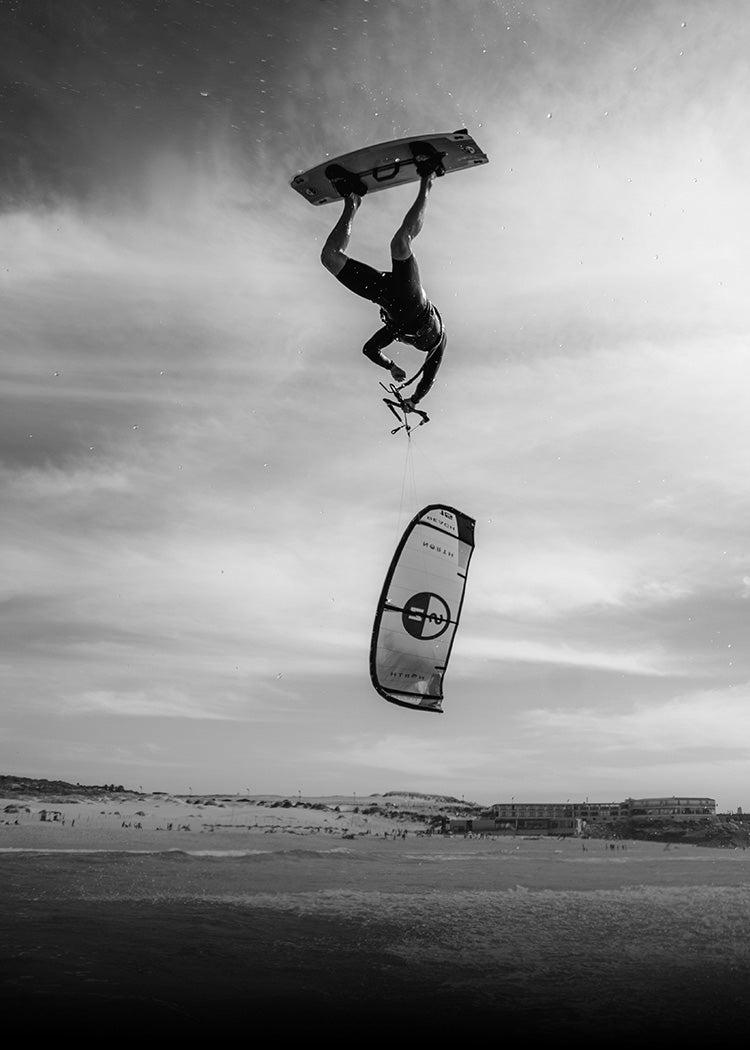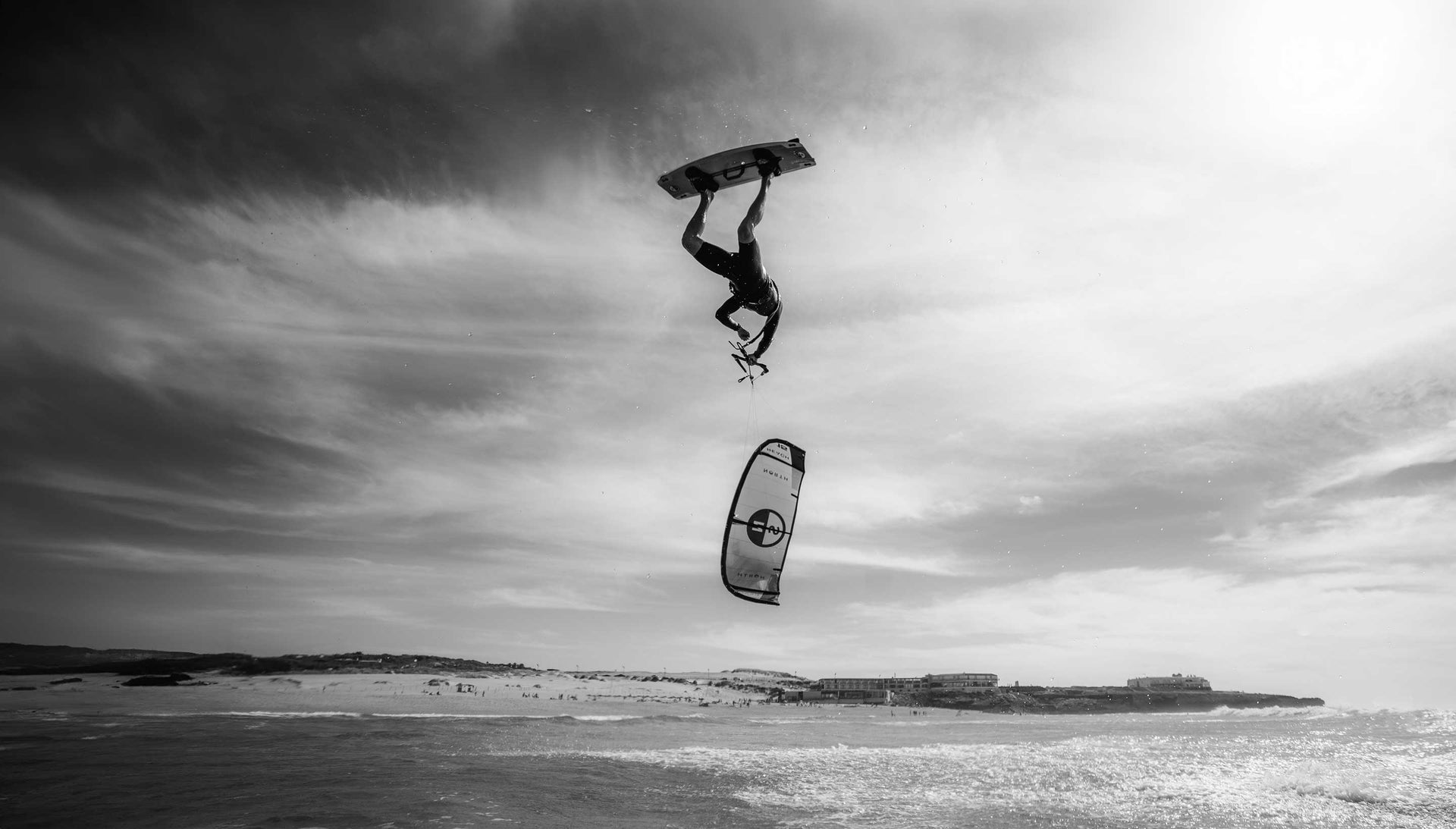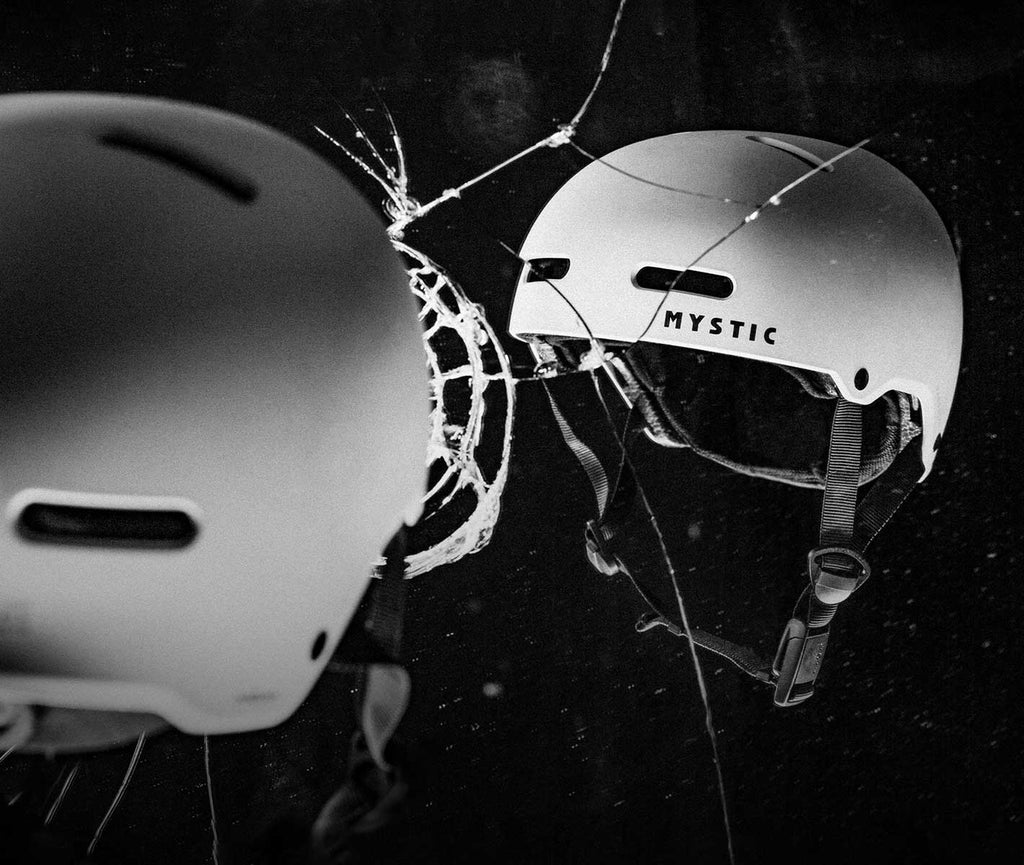Introduction
Water sports offer a unique blend of adrenaline and connection with nature. Yet, the thrill of sports like kitesurfing, wakeboarding, foiling, and surfing carries inherent risks. This guide aims to navigate the non-negotiable aspect that ties water sports together: safety.
Our relationship with the water demands respect, and part of that respect is a commitment to protecting ourselves and others. Essential safety gear is not just an accessory, but a lifeline—they’re crucial for water safety.
In this guide, we boil safety down to two primary parts: reliable safety equipment and comprehensive knowledge, both of which form the foundation of any rider's skill. Yet, beyond the basics, there's a wealth of tips and considerations that could be the difference between a close call and a great day on the water.
Get ready to dive into the core safety principles that unite these diverse sports, followed by an ultimate safety kit guide for each sport: kitesurfing, wakeboarding, foiling, and surfing. Whether you're skimming the surface or cutting through waves, let's ensure every journey back to shore is as safe as the stoke is high. Check out the overview below and feel free to head to the section or sport that’s most relevant to you.
Overview
- Safety Across Water sports: The Universal Protocol
- Kitesurfing
- Wakeboarding
- Foiling
- Surfing
- Additional Safety Tips
1. Safety Across Water sports: The Universal Protocols
Safety Equipment
Different types of water sports activities require specific safety equipment to mitigate risks. A well-fitted impact vest shields against harsh blows, while a reliable helmet defends the head against unexpected impacts. These pieces serve as your personal armor, essential in the unpredictable arena of water sports.
Learn from Qualified Instructors
Guidance from seasoned instructors can accelerate learning curves and engrain safety habits from the outset. They serve not just to teach technique but to embed a safety-first mindset. Regardless of your experience level, taking lessons is a worthwhile investment in your longevity in any water sport.
Environmental Awareness
The allure of water sports is often in the dance with nature's elements, but this dance requires awareness. Knowledge of weather patterns, water conditions, and the surrounding environment is critical. This awareness guides decisions and informs strategies for safety.
Rules and Regulations
Understanding the rules of the water is akin to knowing the rules of the road. These guidelines preserve order and prevent chaos, ensuring that everyone can enjoy the waters with minimal risk of collision or confusion.
Swimming Skills
Proficiency in swimming is non-negotiable. It's the primary skill that will serve you in unexpected circumstances in water sports. Ensuring that your swimming skills are strong is one of the most direct forms of self-protection.
Physical Fitness
The role of physical fitness can't be overstated. A good level of fitness enhances performance but also bolsters endurance and resilience, critical factors when facing the physical challenges posed by water sports. It can also help you avoid injuries, which we’ve written a blog post about here.
Equipment Maintenance
Lastly, the maintenance of your water sports equipment is crucial. Regular checks and care keep gear reliable and performance-ready, helping to prevent equipment failures that could lead to dangerous situations.
These foundational aspects of safety are the threads that connect all water sport enthusiasts. Next, we break down the specific equipment and knowledge needed for each sport, ensuring you’re well-equipped for the water.
2. Kitesurfing
Safety Gear
The core of kitesurfing safety lies in its gear. An impact vest buffers the body when hitting the water, while a safety helmet safeguards against head injuries. Equally vital is the safety leash—this is not just a tool; it's your lifeline, keeping you connected to your kite at all times.
Safety Knowledge
For kitesurfers, safety knowledge is as important as the equipment itself. Mastering the rules of priority ensures right-of-way clarity, preventing collisions. Understanding the wind window is also essential, as it determines your kite's power and your control over it.
3. Wakeboarding
Safety Gear
Wakeboarders must suit up with an impact vest and a helmet before hitting the water. This duo serves to protect against impacts that come from high-flying tricks or sudden falls. In a sport where the water can feel as hard as concrete, this gear isn't just precautionary; it's fundamental.
Safety Knowledge
There's a distinct difference in approach between boats and cable park wakeboarding. Knowing the unique rules and regulations of each is critical for a safe ride. Boat rules dictate how to share the water safely. Boat safety also includes a boat safety checklist. It's vital for those onboard to wear life jackets. Alternatively, cable park rules are designed to protect you and others in the park's confined space. Always read up on the rules of the cable park before you start your session, preferably when you’re making the booking.
4. Foling
Safety Gear
Foiling introduces a new dimension to water sports, where your at risk of coming into contact with the sharp board’s foil. Always handle the foil with care, and wear both an impact vest and helmet on the water.
Safety Knowledge
When foiling, ensure environmental conditions around you like rocks or sand banks is crucial for preventing accidents in areas where the water's depth can change rapidly. It would also be smart to avoid crowded line ups, start small, and be conservative until you get the hang of it.
5. Surfing
Safety Gear
Surfers are bound to their boards by the surf leash, an essential safety tether. For those braving larger waves, an impact suit offers added buoyancy and protection. Furthermore, in cold water, wetsuits are essential to keep sufficiently warm on the water––in some places throughout the entire year.
Safety Knowledge
Knowing how to paddle out to the lineup is fundamental, as is recognizing the impact zone where waves break most forcefully. Being aware of your abilities—knowing your level—helps you choose waves that match your skills. And finally, understanding rip tides and currents is non-negotiable; these powerful natural phenomena can determine not just the quality of your session, but your safety in the water.
6. Additional Safety Tips
Buddy System and Community Support
Embrace the buddy system in water sports for safety and shared experiences; it's about having someone to watch your back in unpredictable waters. Extending this idea, being part of a community offers collective wisdom and support. Both provide a safety network, combining personal vigilance with communal knowledge and mutual responsibility.
Knowing First Aid
Equipping yourself with basic first aid knowledge is a silent guardian. Whether it’s managing cuts, scrapes, or more serious injuries, the ability to respond promptly and effectively can make a critical difference in the outcome of accidents.
Mental Preparedness
Ensure you're mentally prepared for the conditions you’re about to head into. If you’re not ready, this could be a sign that you need to stick with easier conditions until you’re ready for the next challenge. After all, your mindset can influence how your session goes.
Respect for Nature and Wildlife
Lastly, respecting nature and the wildlife you share the water with is paramount. This respect dictates a conscious effort to understand and preserve the ecosystem. By doing so, you ensure your safety and the wellbeing of the environment that provides these incredible sports.
Conclusion
In water sports activities, safety isn't just an afterthought—it's the foundation. As you move forward with your water adventure, use this guide as a baseline for your practices and decisions. Equip yourself, stay informed, and respect the environment you’re part of. Luckily, our recent technical developments in impact vests, helmets, and wetsuits have ensured our gear is as safe as it is comfortable on the water. If you haven’t checked the collection out, it could be a good time to upgrade your quiver and maximize your safety.













